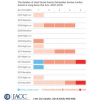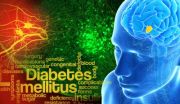(Press-News.org) Heat stroke is 10 times more likely than cardiac events to be life-threatening for runners during endurance races in warm climates, according to a study published today in the Journal of the American College of Cardiology. The authors noted the findings may play a role in the ongoing debate over pre-participation ECG screenings for preventing sudden death in athletes by offering a new perspective on the greatest health risk for runners.
Two of the most recognized causes of sudden death during an endurance race are arrhythmic death, sudden death usually caused by undetected heart disease in a young and seemingly healthy person, and heat stroke; however, the authors noted sudden death from an undetected heart condition often receives more attention from the medical community and the media.
Due to the increasing popularity of races over 10 km (6.2 miles), or endurance races, researchers sought to determine how many life-threatening events during endurance races were caused by heat stroke compared to cardiac events. A life-threatening event was defined as an event requiring mechanical ventilation and hospitalization in an intensive care unit.
Researchers reviewed data on all deaths and urgent hospitalizations at 14 popular long-distance races in Tel Aviv from March 2007 to November 2013. Overall, 137,580 runners were studied. Only two serious cardiac events were reported during the time period and none were fatal or life threatening. In contrast, over the same period, there were 21 serious cases of heat stroke, including two that were fatal and 12 that were life-threatening.
Under Israeli sports law, ECG screening is required for participants who are organized in teams or associations, but not for individuals in public endurance races. Runners were only required to submit a personal statement confirming a state of good health. Researchers, therefore, asked 513 runners who were surveyed at the 2013 race whether they had undergone an ECG screening. Only 35 percent reported an ECG in the previous year and 46 percent said they had an ECG in the previous five years, reducing the possibility that the low number of cardiac events stemmed from at-risk runners being screened out before the race.
"This research shows that heat stroke is a real threat to marathon and long-distance runners; however, there are no clinical studies of potential strategies to prevent heat stroke during these types of events," said Sami Viskin, MD, senior author of the study and a cardiologist at Tel Aviv Medical Center. "It's important that clinicians educate runners on the ways to minimize their risk of heat stroke, including allowing 10-14 days to adjust to a warm climate, discouraging running if a person is ill or was recently ill because a pre-existing fever impairs the body's ability to dissipate additional heat stress, and developing better methods of monitoring body core temperature during physical activity."
INFORMATION:
The American College of Cardiology is a 47,000-member medical society that is the professional home for the entire cardiovascular care team. The mission of the College is to transform cardiovascular care and to improve heart health. The ACC leads in the formation of health policy, standards and guidelines. The College operates national registries to measure and improve care, provides professional medical education, disseminates cardiovascular research and bestows credentials upon cardiovascular specialists who meet stringent qualifications. For more information, visit cardiosource.org/ACC.
Endurance runners more likely to die of heat stroke than heart condition
Study finds more education, research needed for preventing heat stroke death
2014-07-28
ELSE PRESS RELEASES FROM THIS DATE:
Learning the smell of fear: Mothers teach babies their own fears via odor, research finds
2014-07-28
ANN ARBOR, Mich. — Babies can learn what to fear in the first days of life just by smelling the odor of their distressed mothers, new research suggests. And not just "natural" fears: If a mother experienced something before pregnancy that made her fear something specific, her baby will quickly learn to fear it too -- through the odor she gives off when she feels fear.
In the first direct observation of this kind of fear transmission, a team of University of Michigan Medical School and New York University studied mother rats who had learned to fear the smell of peppermint ...
New study confirms water vapor as global warming amplifier
2014-07-28
MIAMI – A new study from scientists at the University of Miami Rosenstiel School of Marine and Atmospheric Science and colleagues confirms rising levels of water vapor in the upper troposphere – a key amplifier of global warming – will intensify climate change impacts over the next decades. The new study is the first to show that increased water vapor concentrations in the atmosphere are a direct result of human activities.
"The study is the first to confirm that human activities have increased water vapor in the upper troposphere," said Brian Soden, professor of atmospheric ...
Impact of Deepwater Horizon oil spill on coral is deeper and broader than predicted
2014-07-28
A new discovery of two additional coral communities showing signs of damage from the Deepwater Horizon oil spill expands the impact footprint of the 2010 spill in the Gulf of Mexico. The discovery was made by a team led by Charles Fisher, professor of biology at Penn State University. A paper describing this work and additional impacts of human activity on corals in the Gulf of Mexico will be published during the last week of July 2014 in the online Early Edition of the journal Proceedings of the National Academy of Sciences.
"The footprint of the impact of the spill ...
The bit of your brain that signals how bad things could be
2014-07-28
An evolutionarily ancient and tiny part of the brain tracks expectations about nasty events, finds new UCL research.
The study, published in Proceedings of the National Academy of Sciences, demonstrates for the first time that the human habenula, half the size of a pea, tracks predictions about negative events, like painful electric shocks, suggesting a role in learning from bad experiences.
Brain scans from 23 healthy volunteers showed that the habenula activates in response to pictures associated with painful electric shocks, with the opposite occurring for pictures ...
Cell's recycling center implicated in division decisions
2014-07-28
Most cells do not divide unless there is enough oxygen present to support their offspring, but certain cancer cells and other cell types circumvent this rule. Researchers at The Johns Hopkins University have now identified a mechanism that overrides the cells' warning signals, enabling cancers to continue to divide even without a robust blood supply. In the process, the researchers found that lysosomes — the cell's protein "recycling centers" — help govern cell division decisions. They also uncovered new evidence that certain drugs can halt the growth of tumors that have ...
Facial features are the key to first impressions
2014-07-28
A new study by researchers in the Department of Psychology at the University of York shows that it is possible to accurately predict first impressions using measurements of physical features in everyday images of faces, such as those found on social media.
When we look at a picture of a face we rapidly form judgements about a person's character, for example whether they are friendly, trustworthy or competent. Even though it is not clear how accurate they are, these first impressions can influence our subsequent behaviour (for example, judgements of competence based on ...
Scripps Florida scientists find genetic mutations linked to salivary gland tumors
2014-07-28
JUPITER, FL - July 28, 2014 – Research conducted at the Florida campus of The Scripps Research Institute (TSRI) has discovered links between a set of genes known to promote tumor growth and mucoepidermoid carcinoma, an oral cancer that affects the salivary glands. The discovery could help physicians develop new treatments that target the cancer's underlying genetic causes.
The research, recently published online ahead of print by the Proceedings of the National Academy of Sciences, shows that a pair of proteins joined together by a genetic mutation—known as CRTC1/MAML2 ...
Glucose 'control switch' in the brain key to both types of diabetes
2014-07-28
Researchers at Yale School of Medicine have pinpointed a mechanism in part of the brain that is key to sensing glucose levels in the blood, linking it to both type 1 and type 2 diabetes. The findings are published in the July 28 issue of Proceedings of the National Academies of Sciences.
"We've discovered that the prolyl endopeptidase enzyme — located in a part of the hypothalamus known as the ventromedial nucleus — sets a series of steps in motion that control glucose levels in the blood," said lead author Sabrina Diano, professor in the Departments of Obstetrics, Gynecology ...
Physicists unlock nature of high-temperature superconductivity
2014-07-28
Physicists have identified the "quantum glue" that underlies a promising type of superconductivity -- a crucial step towards the creation of energy superhighways that conduct electricity without current loss.
The research, published online in the Proceedings of the National Academy of Sciences, is a collaboration between theoretical physicists led by Dirk Morr, professor of physics at the University of Illinois at Chicago, and experimentalists led by Seamus J.C. Davis of Cornell University and Brookhaven National Laboratory.
The earliest superconducting materials required ...
Google searches hold key to future market crashes
2014-07-28
A team of researchers from Warwick Business School and Boston University have developed a method to automatically identify topics that people search for on Google before subsequent stock market falls.
Applied to data between 2004 and 2012, the method shows that increases in searches for business and politics preceded falls in the stock market. The study, 'Quantifying the semantics of search behavior before stock market moves,' was published in the Proceedings of the National Academy of Sciences.
The researchers suggest that this method could be applied to help identify ...
LAST 30 PRESS RELEASES:
36 months later: Distance learning in the wake of COVID-19
Blaming beavers for flood damage is bad policy and bad science, Concordia research shows
The new ‘forever’ contaminant? SFU study raises alarm on marine fiberglass pollution
Shorter early-life telomere length as a predictor of survival
Why do female caribou have antlers?
How studying yeast in the gut could lead to new, better drugs
Chemists thought phosphorus had shown all its cards. It surprised them with a new move
A feedback loop of rising submissions and overburdened peer reviewers threatens the peer review system of the scientific literature
Rediscovered music may never sound the same twice, according to new Surrey study
Ochsner Baton Rouge expands specialty physicians and providers at area clinics and O’Neal hospital
New strategies aim at HIV’s last strongholds
Ambitious climate policy ensures reduction of CO2 emissions
Frontiers in Science Deep Dive webinar series: How bacteria can reclaim lost energy, nutrients, and clean water from wastewater
UMaine researcher develops model to protect freshwater fish worldwide from extinction
Illinois and UChicago physicists develop a new method to measure the expansion rate of the universe
Pathway to residency program helps kids and the pediatrician shortage
How the color of a theater affects sound perception
Ensuring smartphones have not been tampered with
Overdiagnosis of papillary thyroid cancer
Association of dual eligibility and medicare type with quality of postacute care after stroke
Shine a light, build a crystal
AI-powered platform accelerates discovery of new mRNA delivery materials
Quantum effect could power the next generation of battery-free devices
New research finds heart health benefits in combining mango and avocado daily
New research finds peanut butter consumption builds muscle power in older adults
Study identifies aging-associated mitochondrial circular RNAs
The brain’s primitive ‘fear center’ is actually a sophisticated mediator
Brain Healthy Campus Collaborative announces winner of first-ever Brain Health Prize
Tokyo Bay’s night lights reveal hidden boundaries between species
As worms and jellyfish wriggle, new AI tools track their neurons
[Press-News.org] Endurance runners more likely to die of heat stroke than heart conditionStudy finds more education, research needed for preventing heat stroke death





